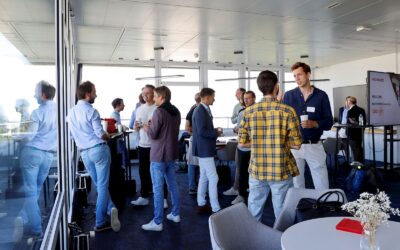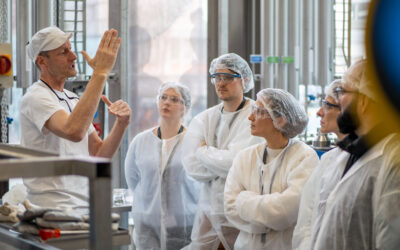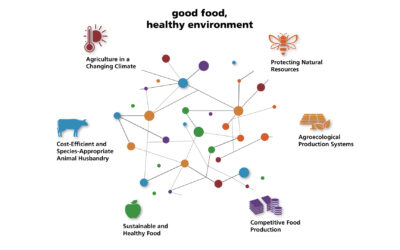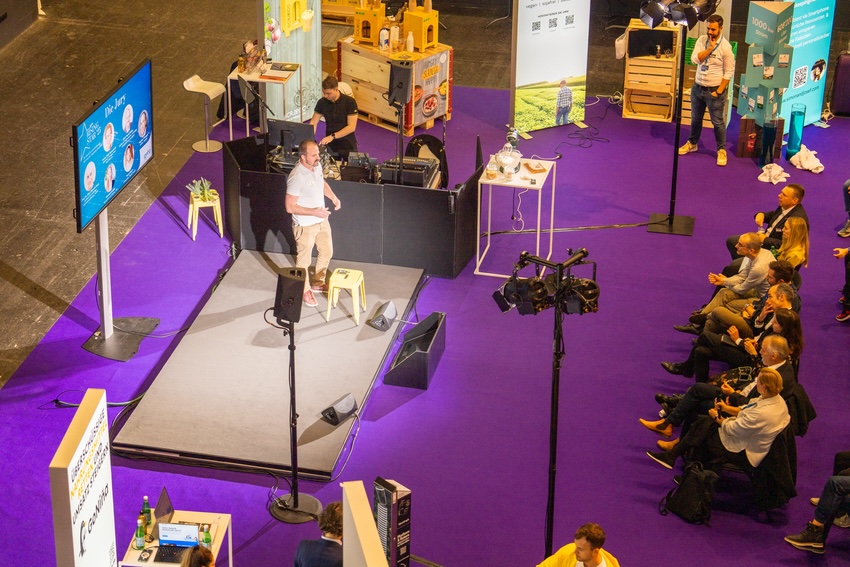Scale-Up Vaud celebrates its 10th...
catchfree beats four other exceptional Swiss startups to be crowned winner of the Igeho Rising Star Award 2025
catchfree beats four other exceptional Swiss startups to be crowned winner of the Igeho Rising Star Award 2025
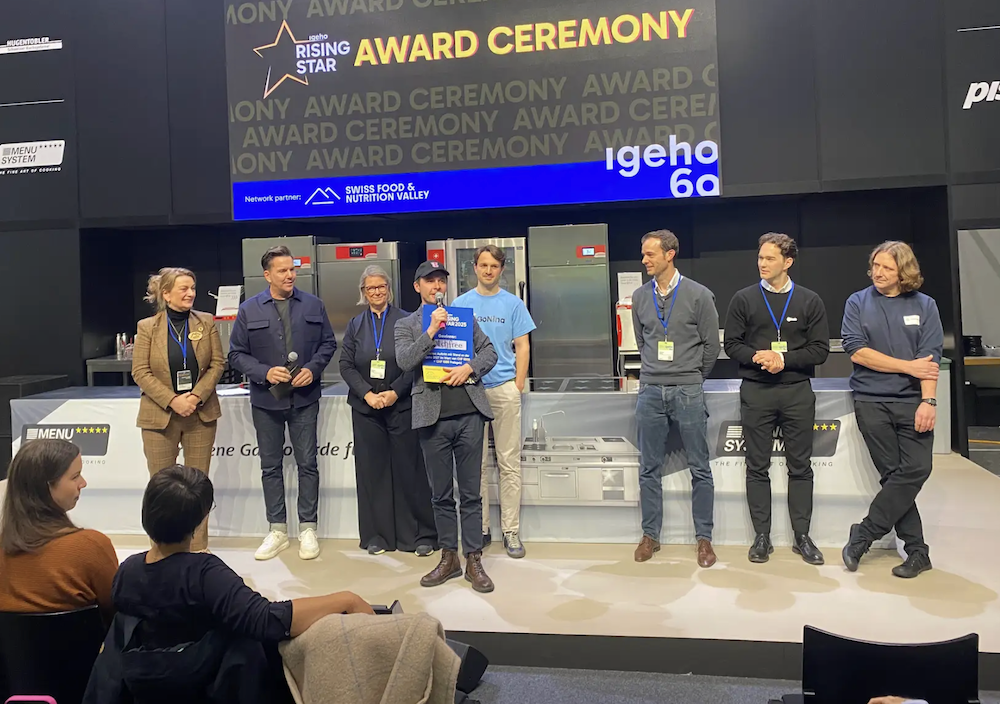
catchfree has been named winner of the Igeho Rising Star Award 2025, announced yesterday by co-hosts Swiss Food & Nutrition Valley (SFNV) and Igeho. The decision followed a live pitch and Q&A session with an expert jury at the Igeho international hospitality and catering tradeshow. Along with the recognition, catchfree received a cash prize to help scale its solution.
catchfree: crafting seafood from plants to protect our oceans
catchfree crafts seafood products from plants, including mushroom protein and rice, using a minimal processing method developed over the past three years. Co-founders Eduard Müller and Severin Eder were inspired to develop their solution after discovering 90% of the world’s oceans are overfished.
Accepting the award, Co-founder Eduard Müller said, ‘We’re thrilled to have won the Igeho Rising Star 2025 Award – it’s a real testament to our hard work over the past few years. Winning this award will help us expand our reach to offer tasty, affordable tuna, salmon, fish fingers and fish bites alternatives in Germany and other international markets.’
Five exceptional finalists
Organisers SFNV and Igeho congratulated all finalists – Circunis, Foodflows, GoNina and Yumame Foods – for their standout innovations.
- Circunis turns waste into value by connecting businesses with surplus food to buyers via its platform.
- Foodflows improves what and how chefs, restaurants, and brands source from Brazilian farms, unleashing the full potential of shorter, fresher, and fairer supply chains.
- GoNina uses AI to predict demand in catering, helping kitchens reduce food waste without compromising quality.
- Yumame Foods harnesses the power of fungi to make it easier for businesses to offer minimally processed, plant-based products at scale.
Each company pitched its solution to a live audience before fielding questions from an expert jury featuring representatives from Planted, FHNW, Swiss Food Research, Gottlieb Duttweiler Institute, ZFV Group and Alpine chef, Rebecca Clopath.
Providing a platform to scale innovation
Christina Senn-Jakobsen, CEO of Swiss Food & Nutrition Valley said, “The hospitality sector plays a very important role in food system transformation. The Igeho Rising Star Award offers startups a chance to showcase their innovations at Switzerland’s leading platform for hospitality, allowing them to connect with potential partners and secure the funding they need to grow. Congratulations to catchfree and all the finalists.”
Igeho Brand Director, Benjamin Eulau, said, “We’re thrilled to announce the winner of this year’s Igeho Rising Star Award. All five finalists demonstrated innovative solutions to some of the food service and hospitality industry’s biggest challenges. I can’t wait to see how these promising startups’ innovations scale and drive impact.”
Now in its second edition, the Igeho Rising Stars Award was launched to celebrate and support promising founders and startups in the hospitality sector. All startups founded after 2020 and registered in Switzerland or Liechtenstein are able to participate. All 15 shortlisted startups were also invited to exhibit at the Igeho 2025, the largest hospitality platform in Switzerland.
About Swiss Food & Nutrition Valley
Swiss Food & Nutrition Valley (SFNV) is a purpose-driven not-for-profit association, founded in 2020. It brings together the Swiss agrifood ecosystem to pioneer future-proof food systems that are good for the planet, good for people, and good for the economy.
Today, SFNV represents more than 150 partners across Switzerland, from large enterprises, retailers, and academic institutions to cantons, SMEs and startups.
Find out more at: https://swissfoodnutritionvalley.com/
About Igeho
Igeho is considered the most important international industry platform for hotels, catering, take-away and care in Switzerland. As a live marketing platform, Igeho offers the hospitality industry a comprehensive overview of the market, interesting networking opportunities and new inspiration on all aspects of hospitality. The first edition of Igeho took place in November 1965 in Basel – at that time still under the name “Internationale Fachmesse für Gemeinschaftsverpflegung”. Since its inception, the trade fair has been held biennially in Basel, with the exception of 2021 due to the Covid pandemic. Communal catering continues to play an important role, but the hotel, restaurant and take-away sectors were also added over the years. Today, Igeho is the largest meeting place for the hospitality industry in Switzerland.
Find out more at: www.igeho.ch
Sign up to receive the Valley’s quarterly newsletter
Latest News
Scale-up Vaud announces the 44 companies newly labelled for 2026
OneAgrix holds USPTO patent-pending status for agentic AI trade infrastructure supporting regulated global food supply chains
Valley partner, OneAgrix, a Swiss- and...
HES-SO Valais-Wallis brings together European experts for extrusion training focused on food technologies
Valley partner HES-SO Valais-Wallis,...
Agroscope’s new work programme places a greater focus on impact and practical benefits
Agroscope’s 2026-2029 Work Programme...
